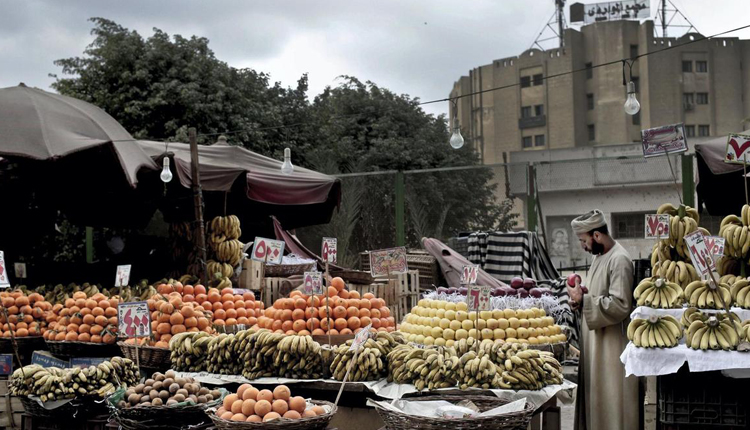Egypt’s annual headline inflation hit its lowest in a decade to reach 2.4 percent in October, the Central Agency for Public Mobilisation and Statistics (CAPMAS) announced on Saturday, as the country nears the end of its economic reform programme, backed by the International Monetary Fund (IMF).
The official statistics agency CAPMAS said inflation dropped to 2.4 percent year-on-year in October, plunging from 17.5 percent in October 2018.
The decrease in annual inflation was the result of a drop in food and beverage prices by 6.3 percent, CAPMAS said.
Urban consumer price inflation dropped to 3.1 percent, down from 4.8 percent in September.
“Urban inflation stands at one percent month-on-month and 3.1 percent year-on-year. This is slightly lower than our expectations of 3.5 percent year-on-year,” head of equity research at Pharos Holding for Financial Investments Radwa El-Swaify told Ahram Online.
October’s monthly inflation is one per cent higher than September’s, with CAPMAS reasoning the jump to increased prices of books, newspapers, and other products. The rise came despite a decrease in the prices of vegetables, poultry, and grains.
Inflation has been on a downward trend since May 2019, despite a hike in domestic fuel prices in July 2019 as part of the terms of the IMF agreement which helped Egypt secure a $12 billion loan in 2016.
Inflation skyrocketed to 33 percent in the summer of 2017, as the country proceeded with its economic reform programme which included the flotation of the currency and fuel subsidy cuts among other measures.
The eased rate is still within the Central Bank of Egypt’s (CBE) target of nine percent, plus or minus three percent, for the fourth quarter of 2020.
The declining rate has pushed the CBE to proceed with its trend in cutting interest rates, slashing it by a total of 250 bps during the past two policy meetings since August.
Overnight deposit and lending rates, as well as the rate of main operations, today stand at 13.25 per cent, 14.25 per cent, and 13.75 per cent, respectively.
El-Swaify is predicting that the newly announced inflation rate would “set the stage for 100 bps cut in interest rates on 14 November,” when the CBE’s Monetary Policy Committee is scheduled to meet to decide on interest rates.
“The interest rate fell to its lowest level in the past nine years. This paves the way for the CBE to continue easing the monetary policy and cut rates in the next meeting,” Sherif Nabawy, director of international markets at Naeem Holding, told Ahram Online.
Like El-Swaify, Nabawy expects the CBE to cut interest rates by around 100 bps.
“However, if the CBE maintains the current interest rate, it would be to assess the impact of the recent cuts on the overall activity,” he added.
